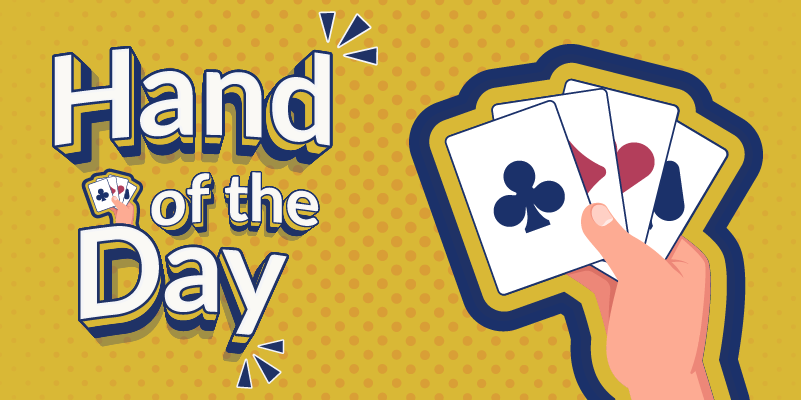



This conundrum was written by Mark Horton and was originally published in the book Misbid these hands with me - you can find out all about it further down the page.
I have never cared much for Individual events — playing each round with an unfamiliar partner — but at one time they were extraordinarily popular. On one occasion in Deauville, I came to the last round with victory (and the substantial prize that went with it) in sight. My partner, a lady of a certain age, was wearing a vast array of jewelry. On the first of the two deals she was the declarer in 4♥. Ten tricks were straightforward, but she managed to go one down. On the last board she was again in 4♥ and although there were eleven tricks on top, she contrived to go one down. As I made to leave the table she enquired, ‘Could I have done any better on that last hand?’ Quick as a flash I replied, ‘Madam, at double-dummy you could have gone two down’.
In an Individual event in China, I find myself looking at this hand as North, at favorable vulnerability:
♠AQJ85 ♥AK83 ♦82 ♣75
When West makes no contribution as dealer, I open 1♠ and East doubles. My partner redoubles and West bids 2♣. I can’t imagine we will collect a large penalty if our opponents have a fit, so I introduce my
second suit with 2♥ and my partner bids 2♠. That suggests a minimum hand for the redouble, but when one opponent is known to hold most of the missing points it is often the case that game can be made without the requisite values, so I make an effort by bidding 3♣. When partner bids 3NT, I am content to let matters rest
No doubt hoping to strike partner’s suit, West leads the ♦4 and this is what declarer can see:
East wins with the king and returns the seven, declarer winning with the queen as West discards the ♥2. The ♠9 goes to East’s king and he returns the ♣10. Declarer wins with the ace and plays the ♦J. East wins and plays a club, but declarer wins, cashes a diamond and plays a spade to the eight for ten tricks.
The full deal
Post-Mortem
North should have been in no rush to bid 2♥, especially at this vulnerability. Assuming East passes 2♣, South doubles, and if that is the final contract a trump lead will murder them. Things are even worse if East tries 2♦, which happened more than once. If South starts with three rounds of clubs, North ruffs, cashes the ♠A and then plays a trump. That will be at least -1400. As to East’s double, it is the sort of bid that one tends to make automatically, but facing a passed partner at adverse vulnerability it should carry a government health warning. As the reader will have realized, +430 proved to be a poor score for North-South
In 2007, Horton wrote Misplay These Hands with Me, a deliberate homage to Reese's classic, Play These Hands with Me. The difference was that the declarer in Horton's book always made an error, sometimes obvious, sometimes not so much. This successful book was the basis of a long-running column in the ACBL's Bridge Bulletin, a sequel in 2019, and earlier this year, Misdefend These Hands with Me. Now the same author turns to the topic of bidding, and once again gives the reader a chance to learn from someone else's mistakes. All the deals are taken from top-level play.



